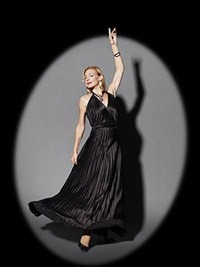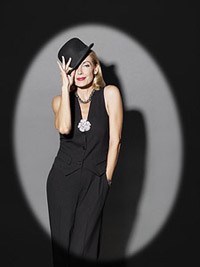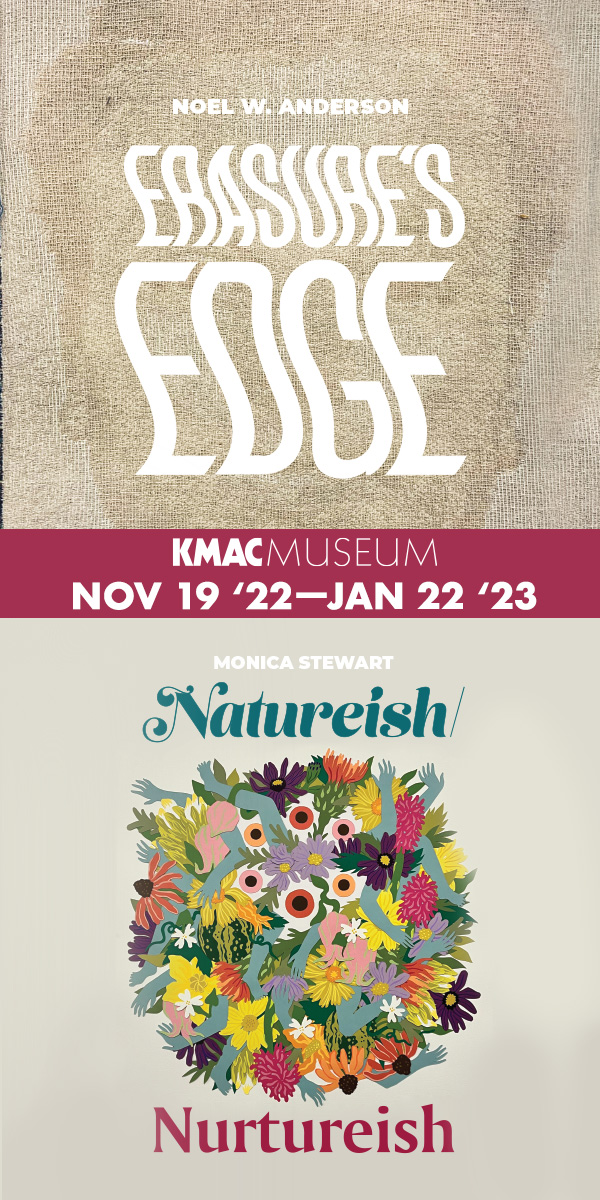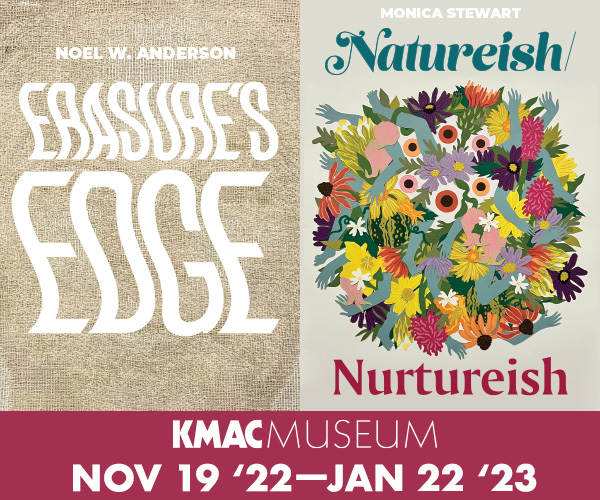As 2014 comes to a close, Lexington bids farewell with a welcoming: a special New Year’s Eve performance of the incomparable chanteuse, Ute Lemper.

The evening pays tribute to the sounds of the Moulin Rouge, including musical selections from Edith Piaf’s La Vie en Rose to Bertolt Brecht’s Surabaya Johnny.
The program begins with an orchestral Tribute Medley to the Moulin Rouge, concluding with Jacques Offenbach’s famous “Can-Can†from his satirical opera, Orpheus in the Underworld.
Ute Lemper takes the stage to perform classic French songs by some of the nation’s most beloved singers, Edith Piaf and Jacques Brel. After intermission, the show continues with the orchestral and cabaret selections of Kurt Weill and Bertolt Brecht.
On the selection of Ute Lemper as the featured soloist of the NYE Celebration, LexPhil Music Director and Conductor, Scott Terrell describes Ute as, “an internationally acclaimed chanteuse that I am honored to bring to the LexPhil stage this season. Her range of cabaret songs from Edith Piaf to Bertolt Brecht will dazzle the audience for a truly memorable New Year’s Eve!â€
Ms. Lemper, a native of Münster, Germany, spent her first eighteen years there, before traveling the world, living in Paris, and finally settling in New York City, on Manhattan’s Upper West Side.
I chatted by phone with Ms. Lemper, concerning her upcoming date in Lexington, her many awards and talents, and what makes her tick.
You lived in Germany until you were 18. What made you leave at that time and pursue the arts?
I was in the original Viennese production of Cats after studying in Vienna in the early 80s. This was after I graduated from the Dance Academy in Cologne and the Max Reinhardt Seminary Drama School in Vienna.
And this led to other opportunities?
Yes. Particularly playing the original European Sally Bowles in Cabaret. This was in Paris. Then Velma Kelley in Chicago. We did that in London and New York, and I won the Olivier Award in London for the performance.
Then voice-overs for films dubbed for German-speaking audiences?
They called me to do the voice of Ariel for Disney’s Little Mermaid and for Esmeralda in The Hunchback of Notre Dame for the German-releases, yes.
But, more than anything, you’ve become known for singing Kurt Weill, Edith Piaf, Jacques Brel, and singers who have seemed absent in the last generation. Is that accurate?
I have quite a bit more in my repertoire, like show tunes and original songs I’ve written. As a matter of fact, I’ve been writing a lot more of my own material in recent years, but I became known for singing the songs of these artists. I put out an album in 1987 called Ute Lemper sings Kurt Weill, and it was a huge success. In the early-90s I followed it with a second album of Weill’s songs and it did well too. I do Weill songs in my performances, among other pieces.
What do you feel is the common thread in your performances? What are you trying to achieve?
One common thread is to make a journey through time, to bring people on an historical journey. Making classical sounds more contemporary. But I have also fallen into this niche of keeping alive many songs that have fallen by the wayside or in some cases were purposely forgotten.
Purposely Forgotten?
Yes. Like many of the Weill songs, which were abandoned in post-war Germany because they reminded the people who lived through those times of the horrors. It’s only many years later that they can be reflected upon and brought out into the light. The wounds were too deep for decades.

I imagine you feel a strong connection to this, having grown up in post-war Germany?
Yes, it is part of my heritage, but this also happened when I went to live in Paris.
What exactly?
When I lived as a Parisian, I found myself becoming an ardent pupil of the French chanson. As a result, I have incorporated many of Edith Piaf’s songs and Brel’s pieces into my show.
For a sampling, here is Ute performing Piaf’s La Vie en Rose.
So you’ve become something of a torchbearer for these artists who may very well have been left behind?.Â
I’m not sure if they would have been left behind, but each of them speaks to a certain time and place and the music is very good. I feel drawn to these more cabaret-style pieces. At one point I was a dancer in Maurice Bejart’s company. I paint. I have many creative and artistic outlets, but the song is what I’m really known for and what I do the most. And with my performances, they are a mish-mash of many songs, with many histories behind them. Many of the songs from one artist can sound and feel different, however. Weill is a good case in point. Like so many of his contemporaries, he had the first half of his career in Europe, then came to the States. The songs from later in his canon have a different feel than those earlier songs. This is what cabaret should be: a blending of many different tones and feelings for variety and appeal.
(Ute was part of the German reunification of artists after the Wall was torn down in 1989. She performed in Roger Waters’ staging of Pink Floyd’s album The Wall, celebrating Germany’s historic move toward peace and solidarity.)
You were part of the German unification after the Wall fell?
Yes. It was and still is a complicated process, unifying the artists from East and West. While it’s had its challenges, there has been no other day like it in history. Unbelievable and overwhelming. Most artists had difficulty even expressing the feelings of it in their work, it was so intense and powerful. I wrote a song, Ghosts of Berlin, concerning it.
Do you feel the unification has been good for Germany, 25 years past the demolition of the Wall?
Absolutely. Today we face other issues, like Solidarity tax.
Solidarity Tax?Â
When the Wall fell, a Solidarity tax was imposed on West Germany to rebuild East Germany. While this was supposed to last only a few years, to get East Germany on their feet, it continues to this day. While West Germans are perhaps bitter about the tax, there is no doubt that the freeing of East Germany, and the money used to rebuild it from the West is nothing but a success story. Sadly, this cannot be said for many similar situations in the European Union.
Do you feel the wounds and ghosts of the past have healed and settled enough to bring out many of these songs in places so affected by wartime?
I did a concert with Zubin Mehta back in 1988. There were at least 50 holocaust survivors, people with numbers on their arms, that attended. One is not sure about the healing and settling, even with sufficient time passing.
What’s the next exciting step for Ute Lemper?
I’ll be doing a 70 years of liberation concert in Rome. I’m showcasing songs that were written in the death camps. Most are in Yiddish and German. I’m finishing up a great project with Paul Coelho called 9 Secrets, from his work, Manuscripts found in Accra. I did the original music for it, so I’m very excited about that.
I also released an album of love songs based on the poems of Pablo Neruda.
Ute, thank you so much for your time. Lexington’s lucky to have you for this special night!
Of course. Thank you!

Tickets to the New Year’s Eve Celebration range from $25-$75 with $11 student tickets as available. Special seating is also available for parties of four with bottle service of champagne at prices of $500 for cabaret tables and $600 for box seating. Price of the special seating includes one bottle of champagne. Bottle service is limited to ticket holders over 21-years of age. Valet parking is available for $10 per car at the Short Street Entrance to the Lexington Opera House.
A New Year’s Eve Dinner at Portofino’s will be hosted following the concert by LexPhil for $75 per person. Tickets include a three-course prix fixe menu and Champagne toast, and must be purchased in advance by December 26, 2014. 20 percent of dinner ticket is tax-deductible, as allowed by law, and will benefit LexPhil.
Ute Lemper will perform at the Lexington Opera House on December 31st at 7:30. To purchase tickets, click here, or call (859) 233-4226.




